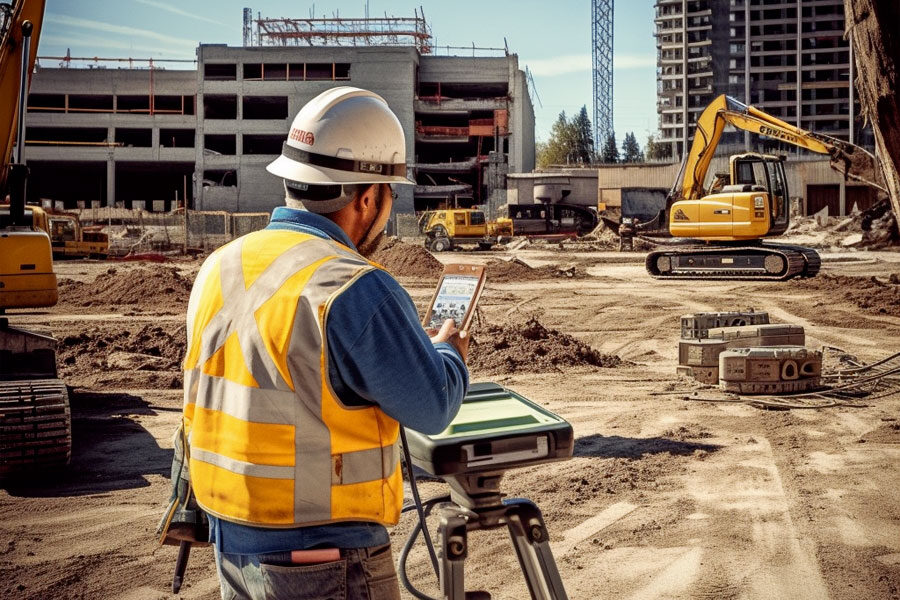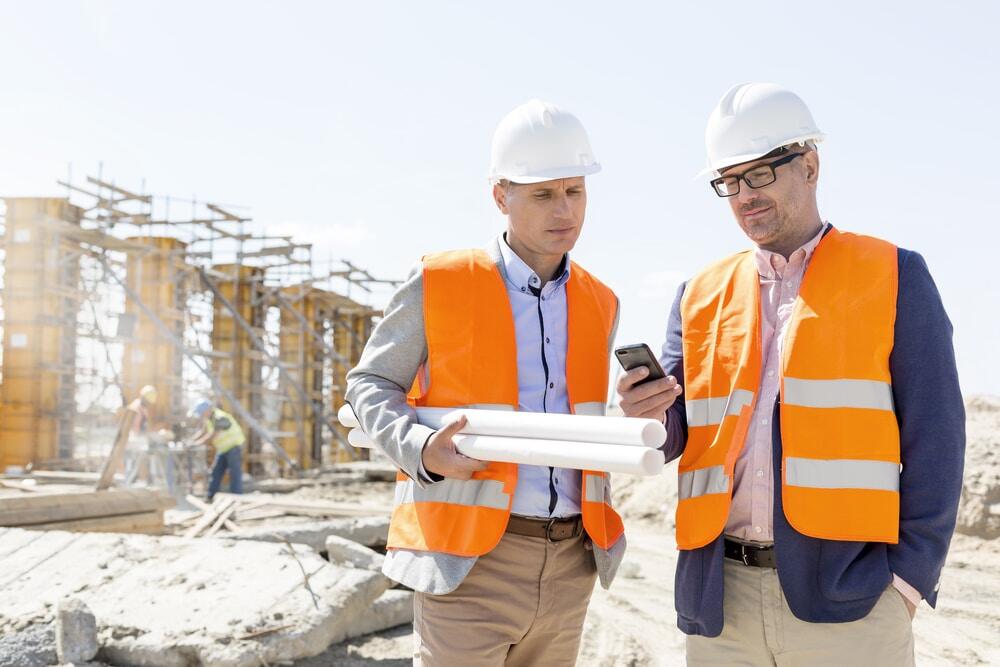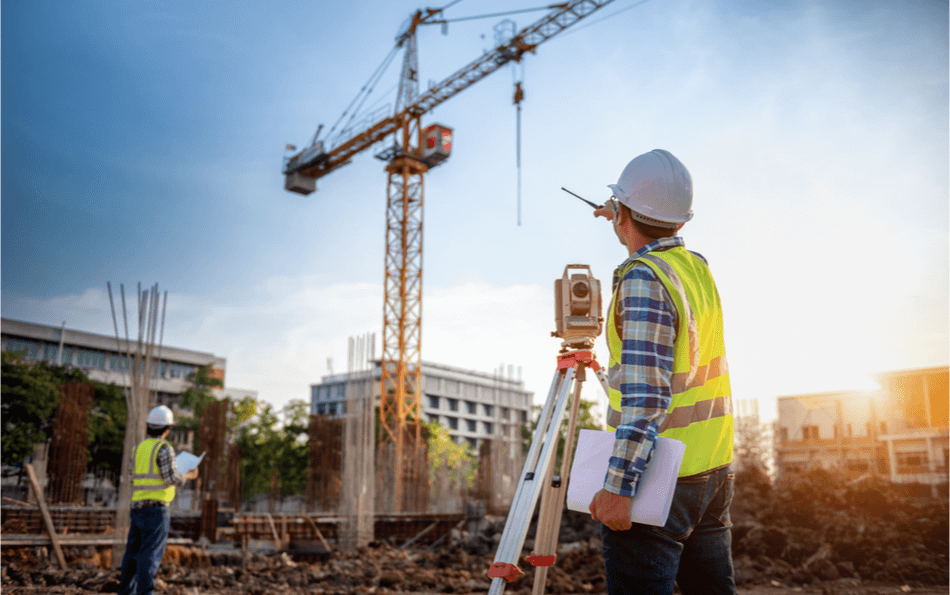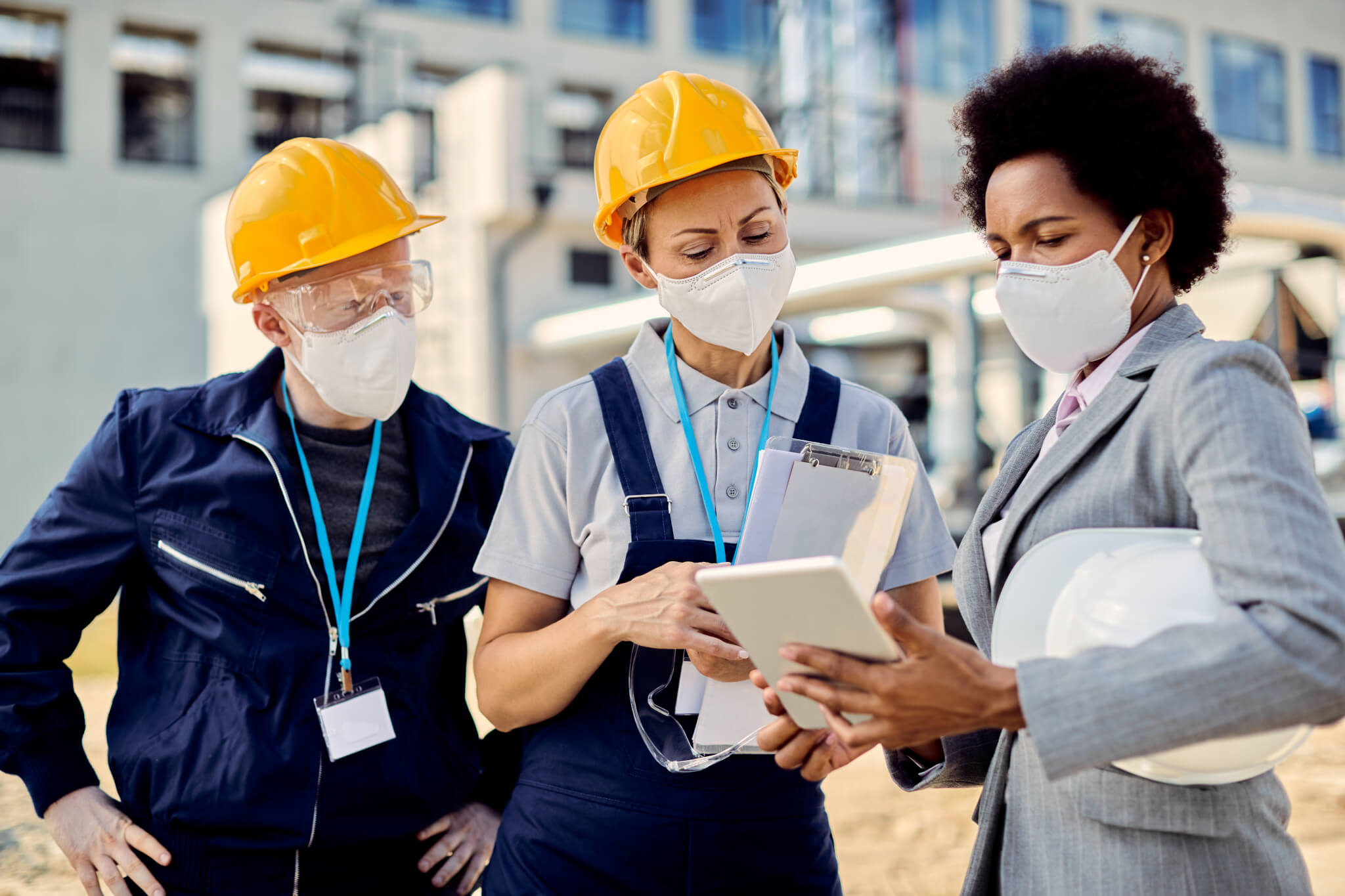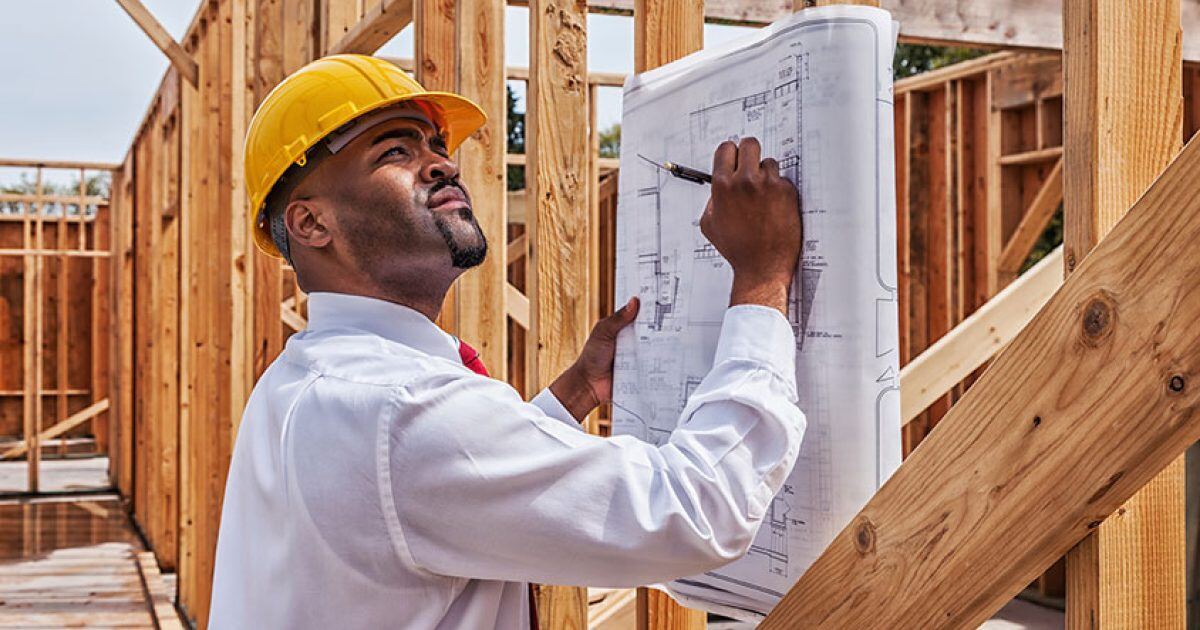
Whether you're a junior construction inspector, a mid-level professional preparing for your next role, or a senior inspector aiming for supervisory positions, interview preparation plays a major role in your career journey. The responsibilities tied to construction inspection, safety checks, compliance verification, and quality assurance require professionals who can think clearly, document accurately, and respond confidently during interviews.
In this guide, you’ll learn the core duties of a construction inspector, the skills hiring managers expect, preparation tips, and 15 essential interview questions with sample answers grouped by technical, regulatory, and soft-skill categories. These insights will help you demonstrate your ability to maintain safety, enforce compliance, and uphold construction standards during the interview process.
Understanding the Role of a Construction Inspector

Before preparing for interview questions, it’s important to understand what construction inspectors actually do and why the role matters in today’s safety-driven construction environment. Construction inspector interviews can be daunting and demanding. With questions ranging from construction inspector skills to industry knowledge and awareness, it is truly an achievement to stand out in front of employing organisations. But, before we delve into construction inspector interview questions and answers, let’s decode what this job profile is all about.
Who is a Construction Inspector?
If you are wondering what a construction inspector does, here’s a quick definition: A construction inspector is a professional responsible for overseeing and assessing the progress and quality of construction projects. Whether working on residential, commercial, or industrial sites, construction inspectors ensure that all aspects of the project comply with local building codes, zoning regulations, and safety standards. They conduct regular site visits to inspect the materials, workmanship, and methods used in construction, identifying any potential issues or violations. Their role is vital in preventing costly errors, ensuring safety, and ultimately delivering a project that meets the required standards.
Construction Inspector Skills
-
A thorough understanding of construction methods, materials, building codes, and regulations is essential for construction inspector jobs.
-
The ability to spot even the smallest discrepancies or potential issues on a construction site.
-
Strong verbal and written communication abilities to effectively convey findings and collaborate with contractors, engineers, and other stakeholders.
-
The capacity to quickly assess situations and develop practical solutions to challenges encountered during inspections.
-
The ability to make informed decisions that ensure compliance and safety on the construction site is one of the most vital construction inspector skills.
-
Efficiently managing time to conduct thorough inspections while meeting project deadlines.
-
Familiarity with construction management and inspection software to document and report findings accurately.
Duties and Responsibilities of a Construction Inspector
-
Regularly visiting construction sites to assess the progress and quality of work being performed.
-
A construction inspector job description involves ensuring that all work aligns with the approved plans, specifications, and permits.
-
Verifying that the construction work complies with all relevant local, state, and federal building codes and regulations.
-
Evaluating the quality of materials used and the craftsmanship of the construction work to ensure it meets standards.
-
Documenting any code violations or safety hazards found during inspections and recommending corrective actions.
-
Preparing detailed reports on inspection findings and communicating them to contractors, project managers, and other stakeholders.
-
Working closely with contractors, engineers, and architects to address any issues or concerns that arise during the construction process.
-
Making sure that all safety measures are adhered to.
5 General Interview Preparation Tips for Construction Inspectors

While construction inspector jobs are highly niche-specific, candidates must follow the generic interview protocol. This will not only help your construction inspector resume stand out but also position you as a seasoned professional. So, let’s delve into some general interview etiquette that can help you bag your desired construction inspector job.
1. Understand the Responsibilities
Before stepping into the interview room, ensure you have a clear understanding of the role of a construction inspector. Familiarise yourself with the construction inspector job description, whether it's focused on building construction or infrastructure projects. This knowledge will help you tailor your responses and your construction inspector resume to show that you are well-prepared for the role.
2. Brush Up on Technical Knowledge
In a construction inspector job, your technical knowledge is your strongest asset. Review the key aspects of construction codes, safety regulations, and quality standards relevant to the industry. Be ready to discuss how you ensure compliance with these standards during inspections. It’s also important to stay updated on the latest trends and technologies in construction, such as Building Information Modelling (BIM) and the use of drones for inspections. Demonstrating your up-to-date knowledge will show your commitment to the profession.
3. Prepare for Scenario-Based Questions
Be prepared to describe specific instances where you identified and resolved issues as part of your construction inspector responsibilities. Focus on how you approached the situation, the steps you took to address the problem, and the outcome. Highlight your decision-making process, attention to detail, and ability to work under pressure. Practising your responses to these questions will help you articulate your experiences confidently.
4. Research the Company
Take the time to research the company you’re interviewing with. Understand their projects, company culture, and any recent news or achievements. Knowing the company’s values and mission will help you align your answers with what they’re looking for in a candidate. Additionally, showing that you’ve done your homework demonstrates your enthusiasm for the role and your interest in becoming part of their team.
5. Prepare Thoughtful Questions
At the end of the interview, you’ll likely be allowed to ask questions. Prepare thoughtful questions that show your interest in the role and the company. For example, you might ask about the types of projects you would be inspecting, the tools and technologies the company uses, or opportunities for professional development. Asking insightful questions not only shows that you’re engaged but also helps you determine if the job and company are the right fit for you.
List of Top 15 Construction Inspector Interview Questions
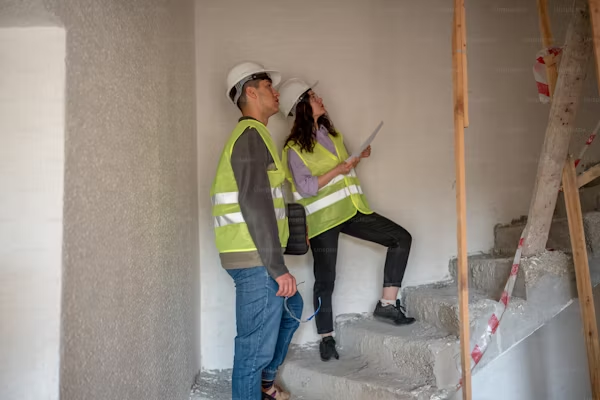
Now, drawing focus on the most heated topic of discussion: what are the construction inspector interview questions and answers that one needs to prepare for? Below are the top 15 questions with sample answers to help you decode the perfect answer for interviews based on your work experience, skills, and knowledge.
Technical Knowledge and Skills
1. What are the key components of a building inspection checklist?
Approach: Focus on the importance of thoroughness in inspections and mention specific items typically checked during an inspection.
Sample Answer: "Typically, a building inspection checklist includes verifying the structural integrity of the structure, checking the quality of construction materials, ensuring compliance with building codes and regulations, inspecting the electrical and plumbing systems, and assessing safety features like fire exits and alarms."
2. How do you ensure that construction materials meet quality standards?
Approach: Drawing references from construction inspector responsibilities, highlight your process for checking materials, from initial verification to on-site inspections.
Sample Answer: "I ensure the quality of construction materials by reviewing the material specifications outlined in the project documents. On-site, I inspect materials upon delivery, checking for compliance with these specifications and looking for any visible defects. Regular communication with suppliers and contractors helps me address any issues promptly."
3. What steps do you take to verify compliance with building codes?
Approach: Show your knowledge of building codes and how you apply them in construction inspector job duties.
Sample Answer: "To verify building code compliance, I begin by thoroughly reviewing the relevant codes and regulations for the specific project. During inspections, I compare the work being done with the code requirements, checking everything from structural elements to fire safety measures. I also keep detailed records of all inspections and ensure any deviations are corrected immediately."
Project Management and Coordination
4. How do you coordinate with contractors and engineers during a project?
Approach: Discuss your communication strategies and how you ensure everyone is on the same page.
Sample Answer: "I attend regular meetings, provide updates on inspection findings, and collaborate with the team to resolve any issues. Also, I use project management software to share reports and ensure everyone has access to the latest information. My goal is to foster a collaborative environment where all parties work together to meet project objectives."
5. What methods do you use to track project progress and ensure timelines are met?
Approach: As one of the most commonly asked construction inspector interview questions, you can answer this by mentioning the specific tools or methods you use to monitor progress and how you address delays.
Sample Answer: "I track project progress using a combination of project management tools and regular site visits. I update progress charts, compare actual work against the project schedule, and note any deviations. If I notice delays, I discuss them with the project team to identify the cause and develop a plan to get back on track. Regular progress reports help me communicate the status of the project to all stakeholders."
6. How do you handle communication between various stakeholders in a construction project?
Approach: Speak about construction inspector job duties and focus on your ability to facilitate effective communication and address conflicts when they arise.
Sample Answer: "I ensure that all stakeholders are informed and involved throughout the project. When conflicts arise, I act as a mediator, ensuring that concerns are heard and addressed promptly. My aim is to maintain transparency and foster a collaborative atmosphere that keeps the project moving forward smoothly."

Industry Standards and Protocols
7. What safety protocols do you follow during on-site inspections?
Approach: Highlight your commitment to safety and the specific measures you take to ensure a safe working environment.
Sample Answer: "I follow strict safety protocols, including wearing appropriate personal protective equipment (PPE) and ensuring that all workers do the same. Also, I check that all safety measures, such as guardrails and signage, are in place and up to code. I also conduct regular safety audits and address any potential hazards immediately. My priority is to ensure that the site is safe for everyone, and I take this responsibility very seriously."
8. How do you stay updated with the latest industry standards and regulations?
Approach: Mention your commitment to continuous learning and the resources you use to stay informed.
Sample Answer: "I stay updated with the latest industry standards and regulations by attending relevant workshops and training sessions, subscribing to industry publications, and participating in professional organisations. I also make it a habit to review updates from regulatory bodies and incorporate them into my work. Continuous learning is essential in this field, and I take every opportunity to enhance my knowledge and skills."
9. What steps do you take to ensure that a construction project meets all legal and regulatory requirements?
Approach: While formulating the pitch for such construction inspector interview questions and answers, discuss your proactive approach to compliance and the importance of thorough inspections.
Sample Answer: "I start by thoroughly reviewing all relevant codes, permits, and regulations before the project begins. During the construction process, I conduct regular inspections to verify compliance with these requirements. I document all findings and work closely with the project team to address any issues promptly. My proactive approach helps prevent legal and regulatory violations and ensures the project runs smoothly."
Soft Skills and Problem-Solving
10. How do you approach a conflict with a contractor or team member on a construction site?
Approach: Display your conflict resolution skills and focus on finding mutually beneficial solutions.
Sample Answer: "When faced with a conflict, I approach it with a focus on open communication and collaboration. I listen to the concerns of all parties involved and work to understand the root cause of the issue. I then facilitate a discussion to find a solution that meets everyone's needs while keeping the project on track. My goal is to resolve conflicts quickly and amicably, ensuring that they do not disrupt the project."
11. Describe a situation where you had to make a quick decision during a site inspection.
Approach: Share a real-life example that demonstrates your ability to think on your feet and make sound decisions under pressure.
Sample Answer: "During an inspection, I once noticed that a section of scaffolding was not properly secured, posing a safety hazard. I immediately halted work in the area and informed the site supervisor. We quickly secured the scaffolding and conducted a thorough check to ensure no other safety issues were present. My quick decision prevented a potential accident and underscored the importance of vigilance during inspections."
12. How do you manage stress during high-pressure inspections?
Approach: Discuss your stress management techniques and how you maintain focus under pressure.
Sample Answer: "I manage stress during high-pressure inspections by staying organised and focusing on the task at hand. I break down complex tasks into smaller, manageable steps and prioritise them based on urgency. I also practise deep breathing and mindfulness techniques to stay calm and clear-headed. By maintaining a positive attitude and focusing on the bigger picture, I can handle stress effectively and ensure that my work remains thorough and accurate."
Future Goals and Aspirations
13. Where do you see yourself in your career as a construction inspector in the next five years?
Approach: This is yet another most-asked construction inspector interview question where you can highlight your career ambitions and how you plan to grow in your role.
Sample Answer: "In the next five years, I see myself taking on more complex projects and potentially stepping into a supervisory role where I can mentor junior inspectors. I also plan to continue expanding my knowledge of new technologies and techniques in the industry. My goal is to become a well-rounded expert in construction inspection and contribute to the success of larger, more challenging projects."
14. What are your long-term career goals within the construction industry?
Approach: Discuss your aspirations for long-term growth and leadership in the industry through continued learning and relationship building.
Sample Answer: "My long-term career goal is to become a recognised leader in the construction inspection field, possibly by specialising in a particular area such as sustainable construction or advanced building technologies. I aim to eventually take on a leadership role where I can influence industry standards and mentor the next generation of construction professionals. Continuous learning and professional development are central to achieving these goals."
15. What new technologies or tools are you interested in learning to improve your inspection process?
Approach: Show your enthusiasm for adopting new technologies and how they can enhance your work.
Sample Answer: "I'm particularly interested in learning more about drones for aerial inspections and Building Information Modelling (BIM) software to enhance my inspection process. These tools offer significant advantages in terms of accuracy and efficiency, allowing for more detailed inspections and better collaboration with other project stakeholders. I believe that staying up-to-date with the latest technologies is crucial for maintaining a competitive edge in the industry."
Conclusion
Preparing for a construction inspector interview requires a balance of technical knowledge, regulatory awareness, and strong communication skills. By practicing structured answers, understanding real-site scenarios, and showing confidence in safety and compliance responsibilities, you’ll significantly improve your chances of landing the role.
If you want to strengthen your technical foundation further, especially in digital construction workflows, the BIM Professional Course for Civil Engineers by Novatr offers hands-on training, real-world projects, and modern QA–QC workflows that align perfectly with today’s inspection requirements.
Explore more resources and industry insights on our resource page to continue mastering your construction career path.
Frequently Asked Questions
1. What does a Construction Inspector do during a project?
A construction inspector reviews work quality, monitors safety, checks materials, verifies code compliance, and documents findings throughout the project lifecycle.
2. What skills are required to become a Construction Inspector?
Key skills include knowledge of building codes, attention to detail, communication, report writing, decision-making, and familiarity with inspection tools and software.
3. How do I prepare for a Construction Inspector interview?
Review building regulations, practice scenario-based answers, study the company’s projects, and be ready with examples of past inspections or site issues you resolved.
4. Are construction inspection jobs stressful?
They can be, especially during tight schedules or high-risk inspections. Strong organization, calm decision-making, and adherence to procedure help manage stress.
5. What certifications help in becoming a Construction Inspector?
Certifications like QA/QC, OSHA Safety, ISO Standards, or BIM-based training strengthen credibility and help candidates qualify for better job roles.
Was this content helpful to you







